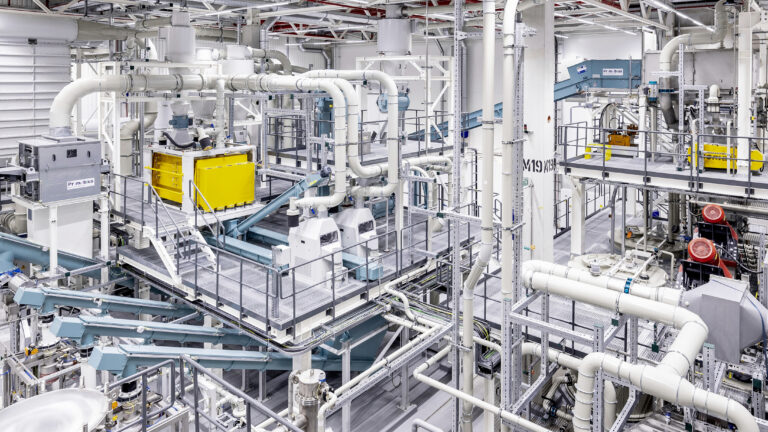
Today, Mercedes-Benz opened its first battery-recycling plant in Germany. The new plant will use an “integrated mechanical-hydrometallurgical” approach to recycling electric vehicle batteries and expects to recover more than 96 percent of the valuable minerals and metals used in EV batteries.
“Mercedes-Benz has set itself the goal of building the most desirable cars in a sustainable way. As a pioneer in automotive engineering, Europe’s first integrated mechanical-hydrometallurgical battery recycling factory marks a key milestone toward enhancing raw-materials sustainability,” said Ola Källenius, chairman of the board of management Mercedes-Benz Group. “Together with our partners from industry and science, we are sending a strong signal of innovative strength for sustainable electric mobility and value creation in Germany and Europe.”
The plant, which is located in Kuppenheim, Germany, shreds the battery modules then uses a mechanical process to separate plastics, copper, aluminum, and iron. The resulting “black mass” is then subjected to a hydrometallurgical process that extracts the cobalt, nickel, and lithium. The plant runs entirely on electricity generated by solar panels and has an annual capacity of 2,756 tons (2,500 tonnes). While this is not especially high, Mercedes says it will use the knowledge it gains to scale up volumes over time.
Automakers are increasingly interested in closing the loop on EV batteries, particularly given concerns about ethical sourcing of some of the minerals (like cobalt) and a desire for more resilient regional supply chains versus global chains that have turned out to be highly susceptible to disruption through events like invasions or even a ship getting stuck in a canal.